Accessible Veterinary Care
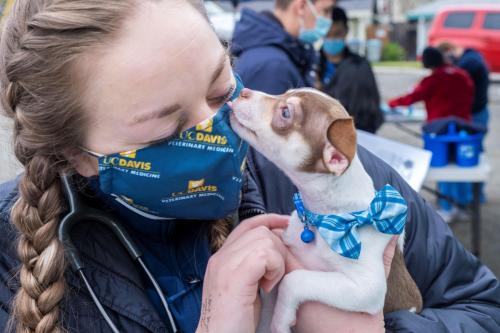
Welcome to Accessible Veterinary Care at the UC Davis School of Veterinary Medicine.
Our Mission:
Accessible Veterinary Care at UC Davis works to address societal needs through student and community engaged outreach clinics, as well as to advance the field of accessible veterinary care with innovative educational models and groundbreaking research.
History of Accessible Veterinary Care at UC Davis:
For many years, UC Davis faculty, staff, and students have addressed the needs of underserved communities, shelters, and rescue groups through student-led community-based initiatives to provide animal care. Accessible Veterinary Care is structured to provide the framework for these programs, providing organizational leadership and connectivity. Through this work, veterinary students develop cultural competencies and leadership skills, all while gaining additional hands-on training and learning compassionate care.
The Accessible Veterinary Care projects mentor veterinary students in community-based veterinary care. While UC Davis has operated some of these organizations for years to decades, this framework is designed to bring these organizations together.
As a California public entity, it is the school’s responsibility to continue these important programs. Granting more access to care to underserved populations, based on the school’s mission to “address societal needs,” is a foundation of the school’s outreach. Teaching veterinary students about this important topic and supporting the health of animals and people in our community is key to the school’s land grant mission.
Accessible Veterinary Care Program Goals for Students:
• Teach students to apply standard of care principles
• Students learn valuable practice-ready skills
• Model sustainable programs that students can carry into their careers
• Give students a "One Health" model in action
• Showcase the importance of collaborative care and translational research
• Teach students that caring for underserved animals can be a valuable practice asset
Donate to Accessible Veterinary Care
Read about animals helped by Accessible Veterinary Care
Accessible Veterinary Care Organizations
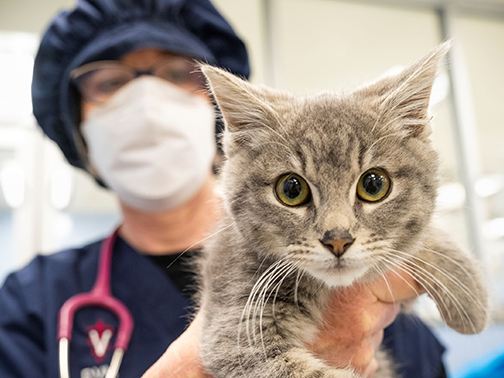
Community Surgery Service
The Community Surgery Service at the UC Davis veterinary hospital serves as an opportunity for fourth-year students to gain a greater degree of hands-on surgical experience during their clinical rotations in the hospital. In the service, students perform surgical procedures such as spays/neuters, mass removals, limb amputations, urinary bladder stone removals, eye removals, and other basic procedures. The service’s mission is to provide high quality, compassionate veterinary care for patients while educating fourth-year veterinary students with a positive, empowering learning experience in performing small animal surgery. In carrying out this mission, the service provides life-enhancing or life-saving surgical care to animals in the community.
DONATE
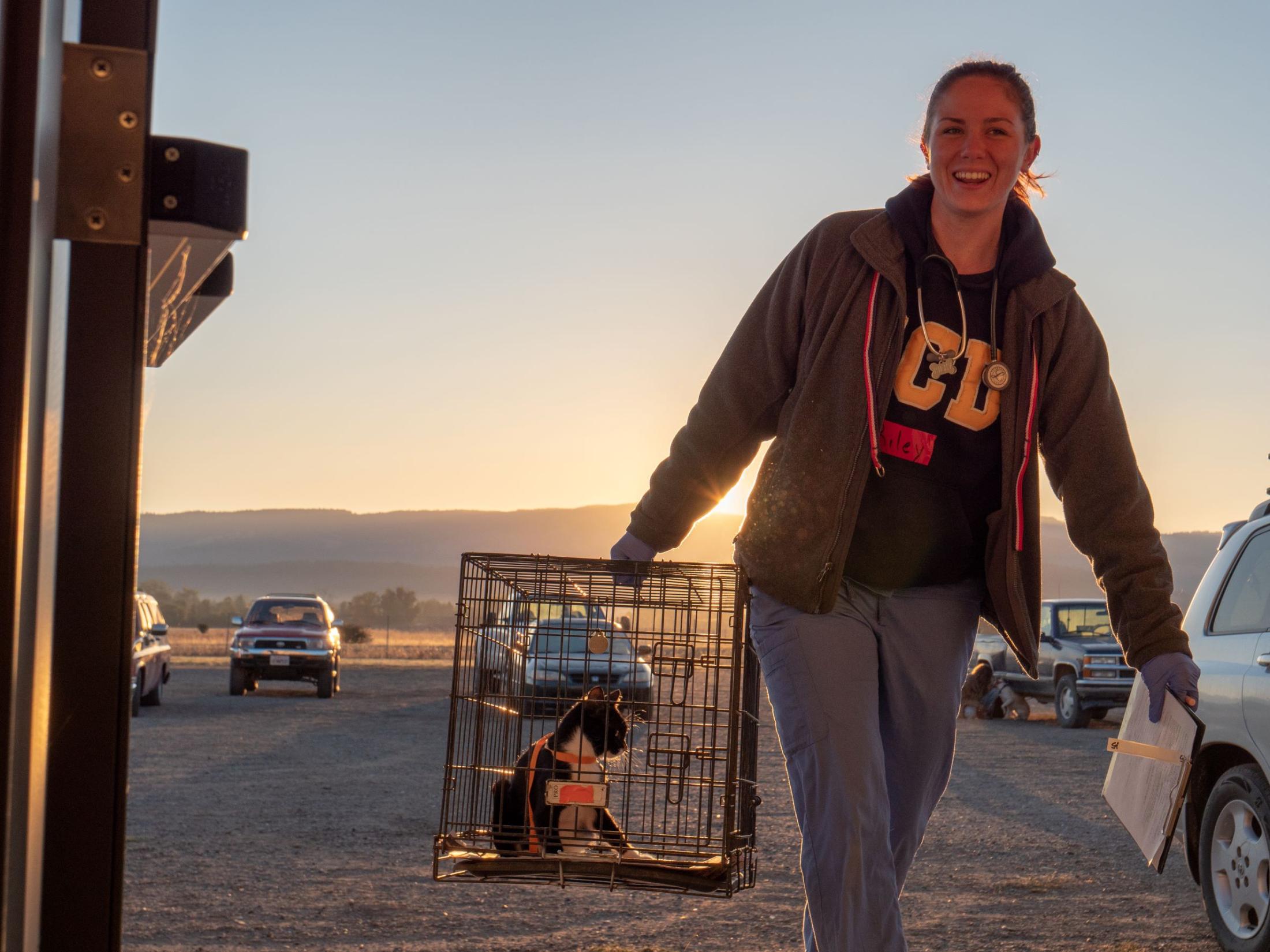
Covelo Clinic
The Covelo Clinic at UC Davis strives to improve animal health and welfare in Covelo, a small town in Mendocino County that struggles with pet overpopulation and access to veterinary care due to financial and transportation constraints. Covelo Clinic partners with a local nonprofit organization, Better Options for Neglected Strays (BONES) Pet Rescue, to conduct 2-3 field clinics each year, each serving hundreds of patients in the span of two days. Clinics provide vaccinations, preventatives, spay and neuter surgeries, owner education, and general wellness care. Each clinic is completely volunteer-run, with veterinarians, veterinary students, registered technicians, and community members coming together to provide care for the animals of Covelo.
DONATE
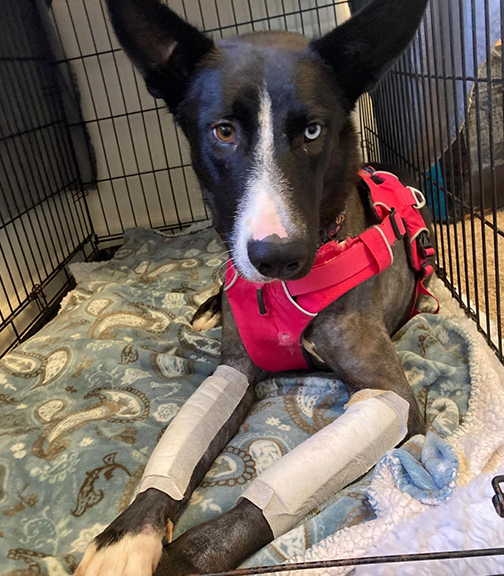
Fracture Program for Rescue Animals
The UC Davis Fracture Program for Rescue Animals repairs long bone fractures in homeless dogs and cats from animal shelters and rescue groups, providing additional learning opportunities for veterinary students and residents of the Orthopedic Surgery Service and the Community Surgery Service. These surgeries provide invaluable exposure to fracture management, furthering the students’ education and the residents’ training. Following surgery and recovery (while being fostered by students), the rescued cats and dogs begin their journey toward a healthy and long life.
DONATE
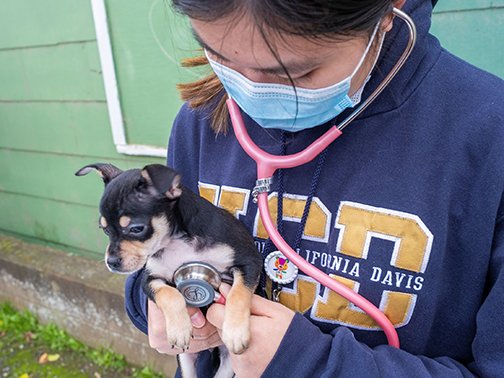
Knights Landing One Health Clinic
The Knights Landing One Health Clinic (KLOHC) veterinary clinic is a free monthly clinic that serves the community of Knights Landing, California, a rural town located 20 miles north of campus. KLOHC offers care to both dogs and cats, providing physical examinations, vaccination, parasite prevention, and minor diagnostics and treatments utilizing a One Health model. UC Davis faculty advisors, veterinary students, and undergraduates volunteer to assist families and their pets in this underserved community in partnership with nursing students and faculty from the Betty Irene School of Nursing. In addition to veterinary care and community outreach through the nursing group, the clinic also offers translation services for Spanish speakers to provide the best communication between the volunteers and the clients.
DONATE
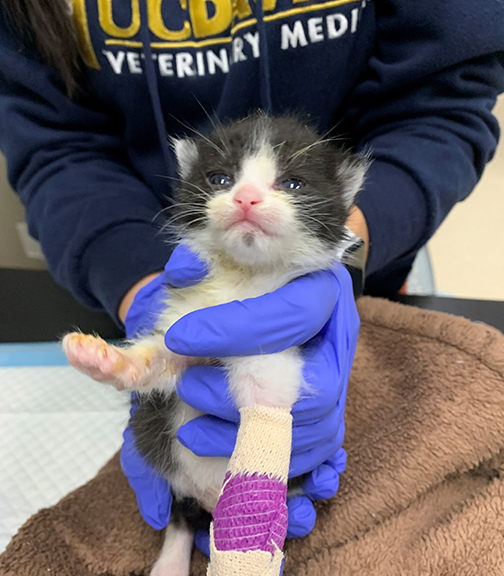
Orphan Kitten Project at UC Davis
The Orphan Kitten Project at UC Davis (OKP) is an entirely veterinary student-run organization. OKP’s mission is to give orphaned and abandoned neonatal kittens a chance of a good quality of life while working with and teaching veterinary students and the community’s general public about kitten care. On intake, kittens receive a complete physical exam from trained veterinary student coordinators. The kittens are placed with fosters within the public and veterinary community who charitably volunteer their time to bottle-raise them in their own homes. OKP pairs each foster with a veterinary student coordinator to monitor the kittens, provide preventative care, and answer any questions or concerns that arise pertaining to the kittens’ health and welfare. Before the kittens are adopted, they are weaned, dewormed, vaccinated, FeLV tested, spayed/neutered, microchipped, and treated for any medical conditions. OKP also takes on other cases such as pregnant cats, orthopedic injuries (partnered with the Fracture Program), eye and skin issues, and other medical cases. The proximity to the UC Davis veterinary hospital allows OKP to take on medical cases of which shelters may not have the resources to accomplish. Once the kittens are ready, they are placed with individual adopters who have personally met with the fosters/coordinator in order to give the kittens the best chance at their forever home.
DONATE
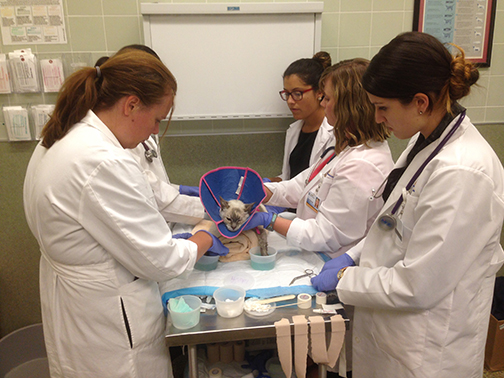
Treatment of Animals Burned in Wildfires
Every year, the UC Davis veterinary hospital treats dozens of animals burned in California wildfires. While the hospital treats many different species of burned animals through several emergency outlets, the majority of those treated by the Accessible Veterinary Care team are cats. Since 2015, the team has treated more than 200 domestic and feral cats rescued from fire zones. Their injuries range from smoke inhalation and minor scrapes to third-degree burns to their paws and bodies. Some cats spend months in care at the hospital’s Feline Treatment and Housing Suite, and many are fostered by the team and other representatives of the UC Davis veterinary community until they can be adopted. While the circumstance surrounding it are unfortunate, students gain valuable experience treating burned animals – a level of education that is not often seen in many veterinary schools due to the rarity of the injuries.
DONATE
Faculty
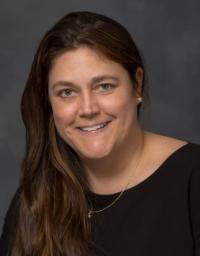
Emily McCobb, DVM, MS, DACVAA
Professor
PetSmart Charities Endowed Chair in Accessible Veterinary Care

Jonathan Dear, DVM, MAS, DACVIM (SAIM)
Associate Professor
Co-Chief of Service - Small Animal Internal Medicine Service
Assistant Director - Small Animal Hospital
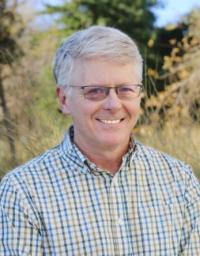
Michael Ziccardi, DVM, MPVM, PhD
Professor
Executive Director - One Health Institute
Director - Oiled Wildlife Care Network
Director - California Veterinary Emergency Team
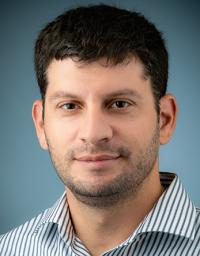
Steven Epstein, DVM, DACVECC
Professor
Assistant Director - Small Animal Hospital

Karen Vernau, DVM, MAS, DACVIM (Neurology)
Professor
Faculty Advisor - Orphan Kitten Project

Elizabeth Montgomery, DVM, MPH
Clinical Professor
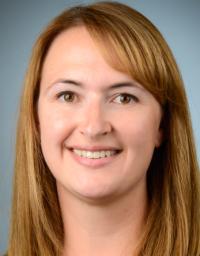
Stacy Hart-Kraus, DVM
Staff Veterinarian
Chief of Service - Shelter Medicine Service
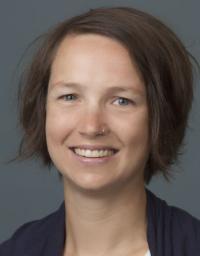
Cindy Karsten, DVM, DABVP (Shelter Medicine)
Staff Veterinarian
Outreach Veterinarian - Koret Shelter Medicine Program
Staff
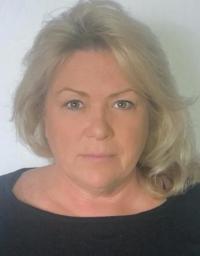
Kelly Stetter, RVT
Animal Health Technician

